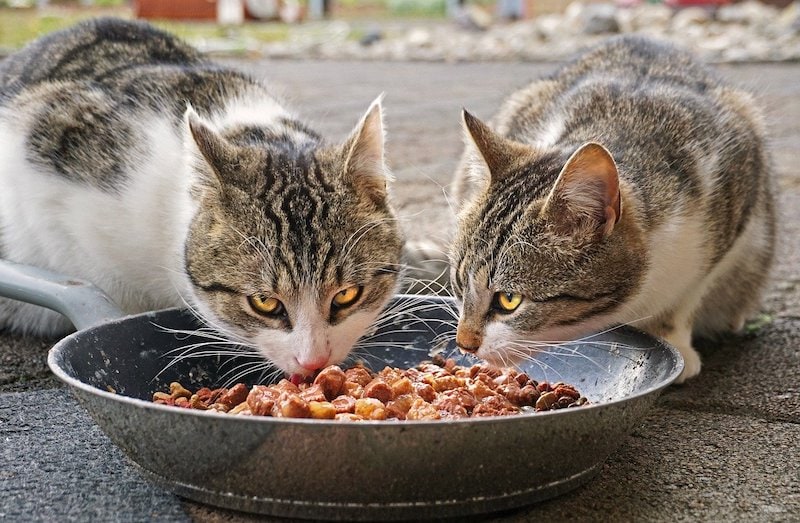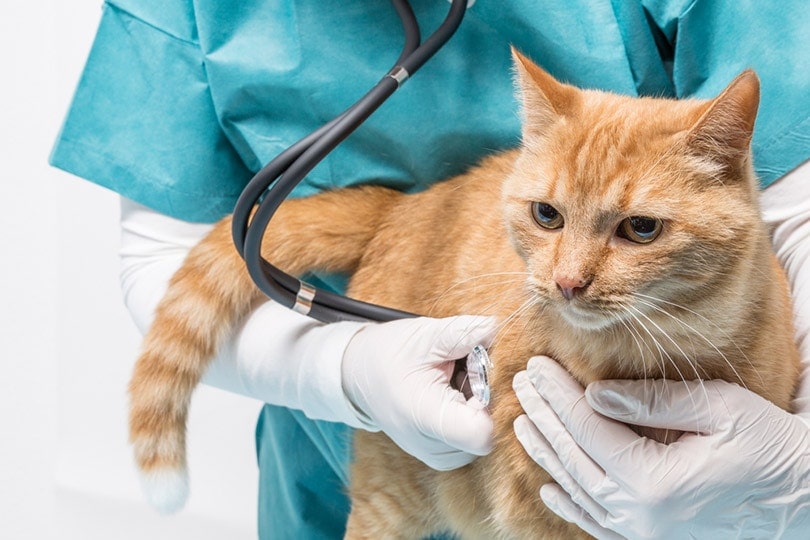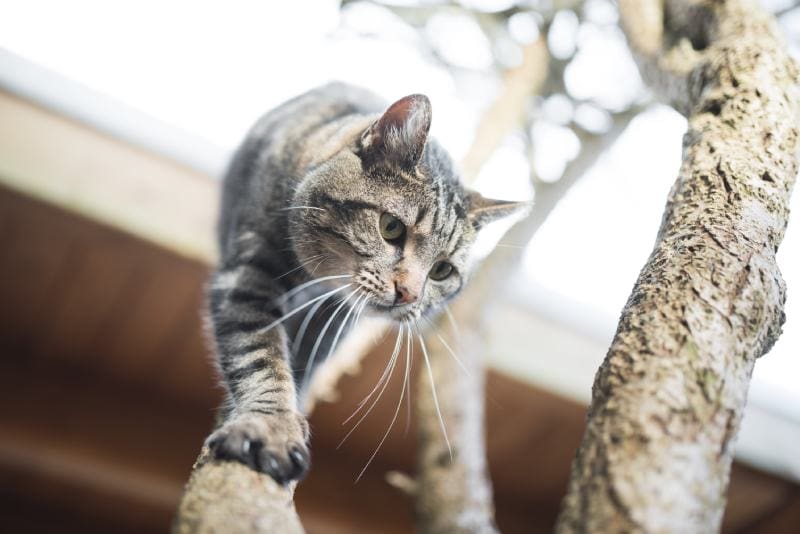Why Do Cats Meow Before They Poop? 5 Possible Reasons

Updated on
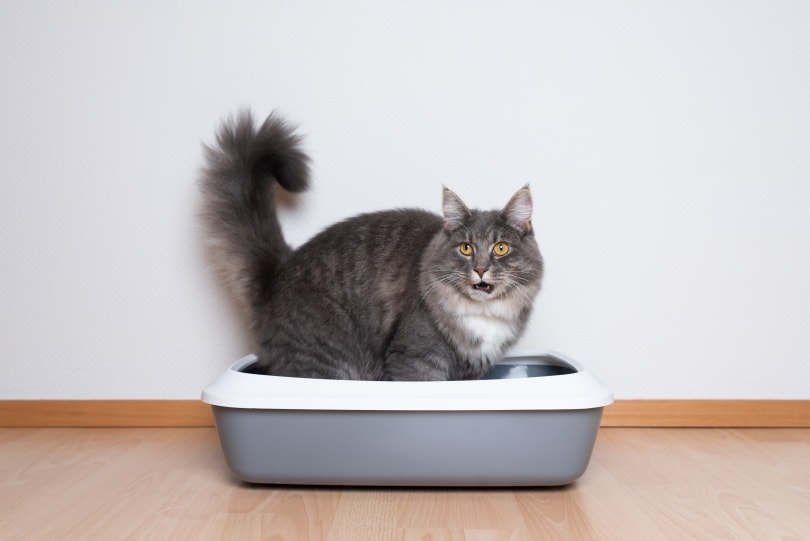
This may be an odd yet common behavior that cats display when they are using the bathroom. The meow is typically gentle toned and can be repeated up to three times before they eventually use their litterbox.
Most owners who see their cat meow before they poop or urinate may be concerned, however, this behavior does not always indicate something bad. However, a possible health problem should not be ruled out.
If you are interested in learning the explanation behind this unusual behavior, then this article will inform you of everything you need to know on the topic.
The 5 Reasons Why Cats Meow Before They Poop
There are six different possible explanations behind why your cat may be meowing before defecating, some reasons are not concerning while others may need a vet’s help to determine the cause of the problem. The tone of your cat’s meow while displaying this behavior can give you a good indication of whether they are trying to communicate with you, or if they are in pain.
1. Protection & Vulnerability
If you are in the same area where your cat is using its litterbox, or merely outside while your cat does its business in the yard, the most common explanation for your cat to meow before defecating is that they are trying to communicate to you that they require protection from you. When cats are using the bathroom, they naturally feel vulnerable to predators, even in their own homes. It is based on an instinct that cats have, and most of these instincts are carried with them through decades of domestication.
It’s the cat’s way of telling you that they need you to watch over them while they are in such a vulnerable state. This can be determined by the way your cat’s body language is communicated to you. If this is the case for your cat’s bathroom meowing, they will likely face you or stare at you while they go about their business.
In some cases, the cat may even feel as if you are the threat. Although this is not true, some cats prefer privacy and do not welcome their owners staring at them. Sometimes other animals like dogs can bother them to the point that they show distress while pooping or urinating. If you feel that this is the most reasonable explanation for your cat’s meowing, then perhaps an enclosed litterbox with an open-top is a good option to provide your cat with the privacy it needs.
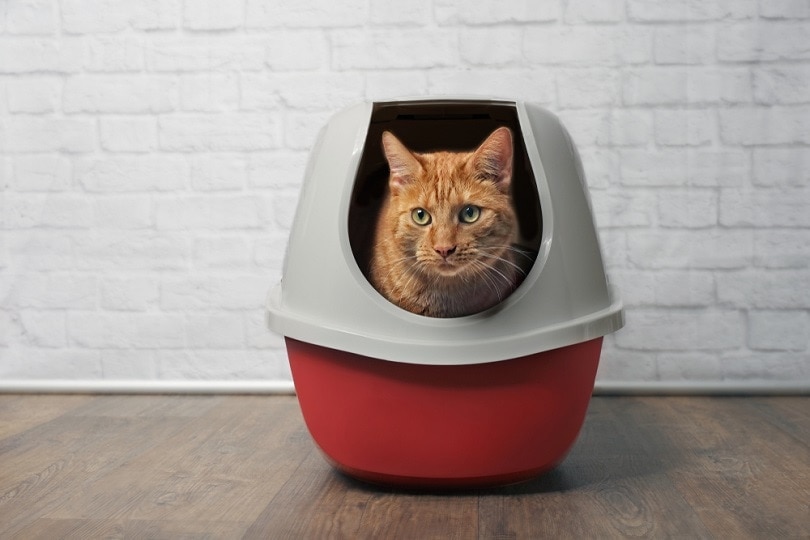
2. UTI
This is a less serious yet equally concerning issue that causes your cat to meow in pain while it urinates or poops. This is because it hurts for them to go to the bathroom, and they are trying to communicate their pain with you. A UTI can cause a burning sensation while urinating and uncomfortable bowel movements due to abdominal pain. It is pretty much the same as when a human gets a UTI, it’s uncomfortable and painful in severe stages.
Aside from letting out a painful meow, your cat will also display symptoms that can indicate if a UTI is a problem.
- Straining to urinate
- Crying out while urinating
- Excessive licking of the genital area
- Blood in the urine
- Redness and discharge
- Frequent or prolonged attempts to urinate
3. Intestinal Blockage
If your cat has eaten something they should not have, like plastic or the stuffing from inside of a toy, they’re at risk of developing an intestinal blockage. The cat may then begin to meow before using the litterbox. Mainly because they are in discomfort from the object that is lodged in their stomach or colon. Blockages can also be caused by human food scraps, hairballs, polyps, and tumors.
- Low body temperature
- Stressed meowing when defecating
- Loss of appetite
- Diarrhea or constipation
- Vomiting
- Lethargy
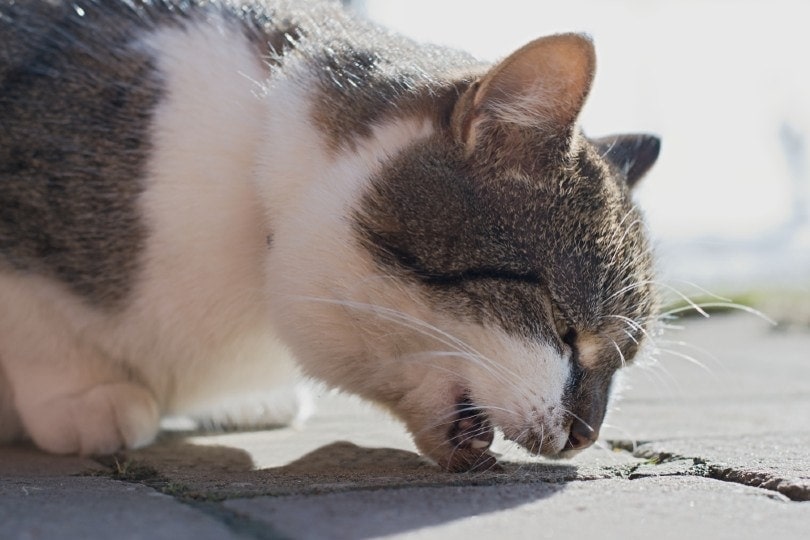
4. Bladder Stones
Bladder stones are mineral deposits or cysts that are small. They cause immense pain when urinating or pooping as it causes pain in the abdomen. Kidney stones can block the urethra and make it difficult for the cat to use its litterbox.
- Blood in the urine
- Frequent need to urinate
- Excessive genital licking
- Painful urination
- Swollen abdomen
- Vomiting
- Spraying and inappropriate urination
5. Constipation
Constipation prevents the cat from passing waste properly. If your cat is pooping while meowing but nothing is being released, it is possible that your cat is constipated and is having difficulty moving its bowels. A cat can be classified as constipated if they have not defecated in more than a day, typically if they have tried multiple times but little to no poop has come out.
Constipation can be caused by multiple factors, mainly; lack of fiber in the diet, dehydration, and the ingestion of foreign objects.
- Straining when pooping
- Decreased appetite
- Dry and hard, clustering stools
- Swollen and tensed stomach
- Swollen anal glands or bleeding
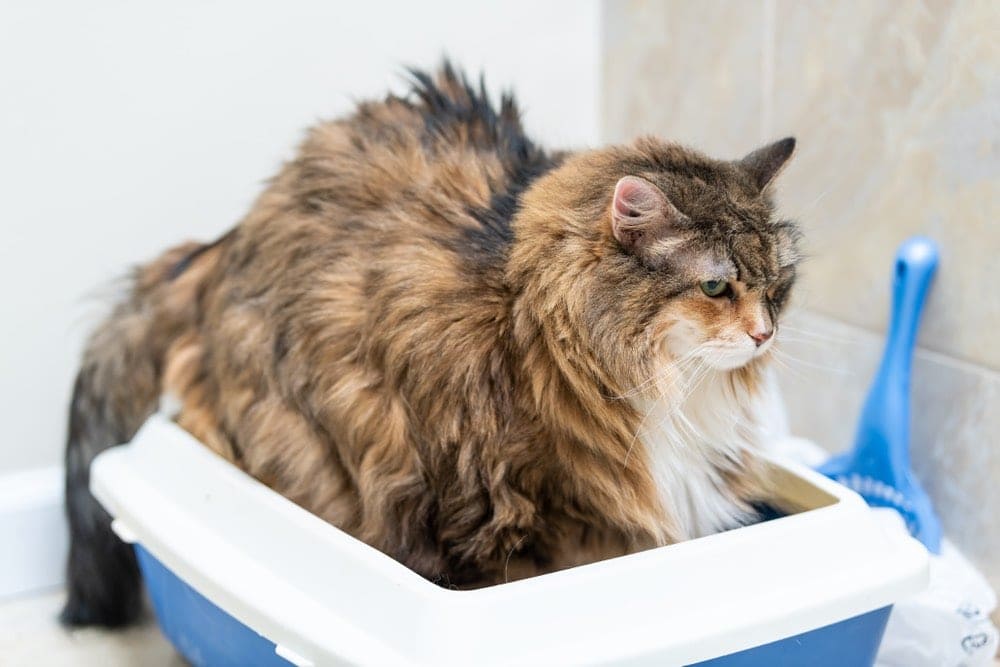
6. Cystitis
This is also known as feline idiopathic cystitis. It is a condition that’s common in older cats and is mainly triggered by stress within the environment.
It is incurable and even if your cat does overcome this condition, it is likely to happen again when its stress levels increase. Anti-inflammatory and painkillers can help your cat cope with uncomfortable symptoms. However, it is better to prevent this condition from occurring by eliminating stressors in your cat’s environment, rather than having to treat it when it is too late.
- Excessive grooming of the genital area
- Aggression
- Blood in the urine
- Uncomfortable crying while using the bathroom
- Frequent urination
 Is This Behaviour Good or Bad?
Is This Behaviour Good or Bad?
The reasoning can be both good and bad. In most cases, it’s normal behavior and not necessarily good or bad, just natural behavior. It is not a sign of excitement or content, and not every cat will meow when they are doing their business.
It is a bad thing if the cat meowing because of health problems, either from struggling to pass urine or waste. If your cat only does in it in your presence, then it is most likely because they are searching for your protection. However, if your cat does it frequently while it goes to the bathroom, it could show that they are in pain or discomfort, and this is considered bad.
If your cat is starting to go to the bathroom outside of the litterbox, this could be another sign its time for vet intervention. However, occasional accidents are to be expected with pets so monitoring frequency and severity are important.
Our favorite enzyme cleaner for eliminating pet smells and stains is our very own Hepper Advanced Bio-Enzyme Pet Stain & Odor Eliminator Spray. It makes clean-up a breeze because it permanently removes even the very worst smells and stains (urine, feces, vomit, you name it!) from basically any surface you can imagine.
Is Veterinarian Intervention Necessary?
It won’t hurt to get your cat checked by a vet if this behavior concerns you or becomes a new problem with other symptoms. It is recommended to get your cat checked into the vet for a full health evaluation every few months so that they can have a routine examination to check for any underlying health problems that can affect basic tasks.
If you do suspect that your cat is meowing out in pain while pooping or urinating, then you must get them to your nearest vet as soon as possible. Even if it may seem like a silly thing to do because your cat is meowing while pooping, it may be necessary to mention to your cat’s vet the next time a check-up is due.
It is also important to monitor your cat’s litterbox because it will help you notice any issues with their poop. A healthy cat’s poop should not be too soft or hard and the color should be brown and not black (which could indicate the presence of blood), or too light which is a symptom of liver disease.
Final Thoughts
Don not be afraid to get up in your cats ‘business’, especially when it comes to checking on their health. There could be an underlying health condition if your cat has recently started meowing while they go to the bathroom, even if you are not looking at them.
If anything seems amiss, don’t hesitate to get them to a veterinarian to be safe.
See Also:
Featured Image Credit: Nils Jacobi, Shutterstock

 Is This Behaviour Good or Bad?
Is This Behaviour Good or Bad?

